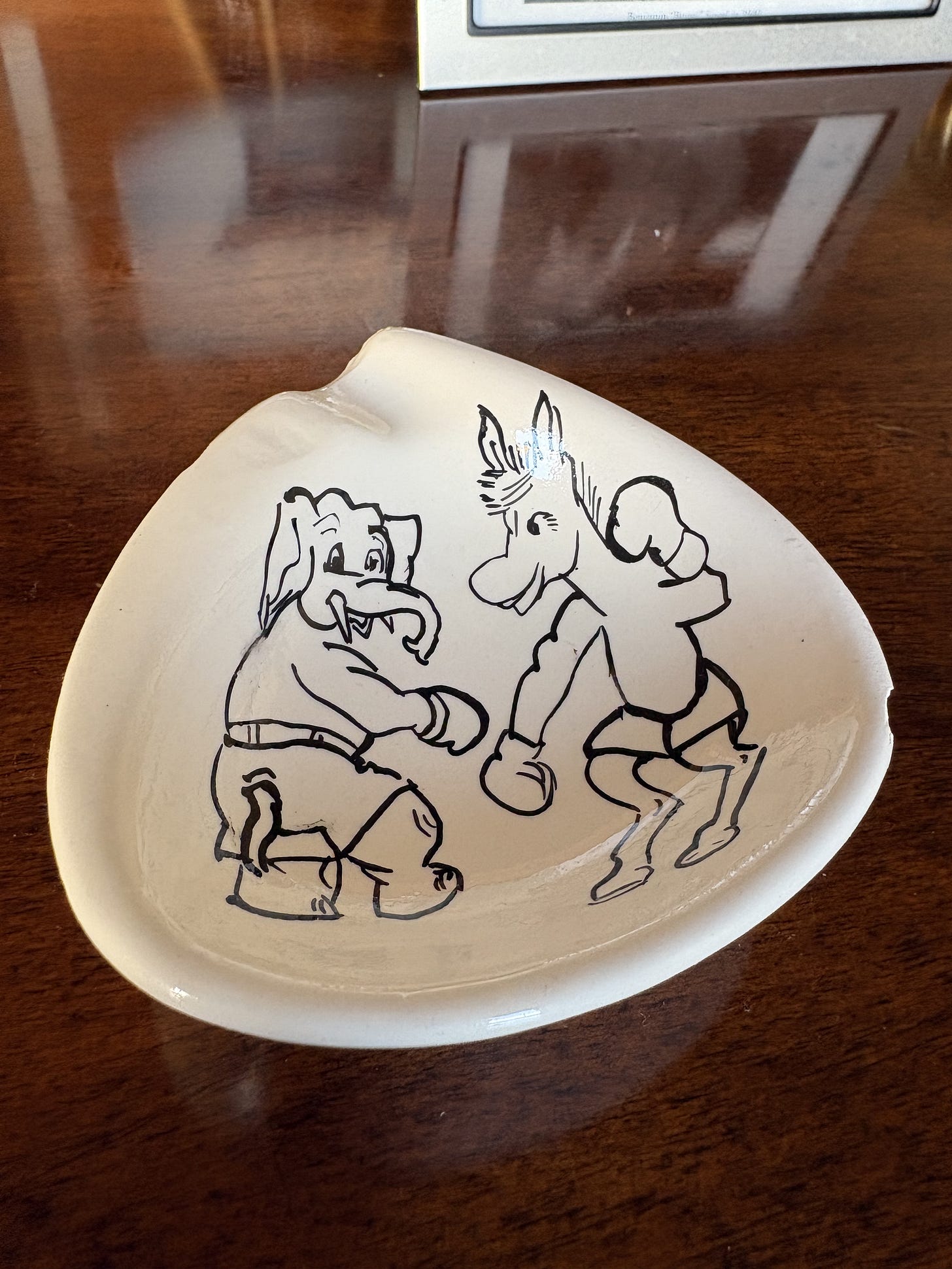On Election Day, I Always Win
There is something to be said for growing up in a mixed, upstate community.
I always leave the election booth grinning like I’ve won the lottery, because I have.
“You’re lucky you were born in America, because if you’d been born in Europe, you’d be dead,” my mother said.
The numbers don’t add up on this, I was born well after the Holocaust ended, but I got the point.
The area where I grow up, outside the fading, Catskills resort town of Fleischmanns, is loaded in summer with refugees from Hitler. The women, some of whom had lost their first families in concentration camps, bundle their children in two sweaters on the hottest summer days; walking down Main Street in July you hear a mix of Yiddish, Hungarian, German, and Polish. Then, after Labor Day, it all changes, and the population is back to dairy farmers, primarily Gentile and Republican.
“What’s your religion?” a kid asks me in the Fleischmanns school playground, when I am six or seven.
“Jewish Democrat,” I say, because that’s how joined the two things are in my mind.
Jewish Democrats revere Roosevelt and have grandmothers who speak Yiddish and go into the city when it’s not the season to see a show and pick up salami at Katz’s.
Republican Gentile farmers have family gravestones going back 100 years in their yards and drink milk with their hamburgers and refer to the stream where they go fishing as the “crick”.
“I was in New York City once, when I got out of the Navy,” Gentile farmers say.
But there is no bad feeling between the Jewish Democrats, a tiny minority, and the Republican Gentiles of which I am aware.
My father, the Jewish Democrat, is elected town supervisor year after year by the Gentile Republicans, in Halcott Center, the farming hamlet outside of Fleischmanns where we live. There are big election night parties at our house in which the women end up congregating upstairs and the men gravitate to the basement, where the beer keg is. In the morning, cars are scattered around our house, because men were too drunk to drive home. This is the sign of a good party.
“That was a nice community,” my mother will say, decades later, after she has resettled, as tradition dictates, in Florida. “If a woman was pregnant, they always plowed her road first.”
My friend Herb, having grown up in the grand metropolises of Brooklyn and Schenectady, and never known a Jewish farmer, sees it differently.
“Your family are Jewish hillbillies,” he says, when he first meets them.
This is true, but only to an extent. My grandfather, an immigrant tailor in New York City who knows nothing about farming, buys a dairy farm during World War One because it gets him a military exemption. The farm expands to a boarding house, then a small hotel, with a pool and dining hall and a cousin from the city teaching cha cha on the front porch.
But my large, extended family are also real farmers. They milk cows and bring in the hay; they go to square dances and baby showers and town meeting at the Grange Hall.
You can only be so cynical about America if you have gone to meetings at a Grange Hall. Or if you’re talking to the farmer down the road whose family has been here 100 years and he tells you he taught your grandfather how to milk a cow.
In the mid ’50s, the days when my father is involved in politics, my mother, who is playing around with pottery, makes an ashtray showing a Republican Elephant and a Democratic Donkey cheerfully duking it out with boxing gloves.
I don’t know whether it was a decal or she drew it freehand, it was a pretty common image in those days. But this morning, before I went to the polls, I took it out of the closet and put it out on my desk.
Because, you know, the Grange Hall.
And if I’d been born in Europe, I’d be dead.
.



Love this, Joyce! I spent 2 nights in Fleischmanns this fall (in the area for a wedding). What a pretty place to be from!
My adorable husband was brought up in Chicago and our motto has always been, "Vote early and OFTEN. " Because we can, we vote on the first day of early voting and then show up on Election Day on the off chance that they forgot. They never forget.